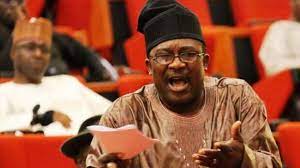There is noticeable absent of rent control or regulations in Federal Capital Territory (FCT), Abuja, Nigeria’s nation’s capital. Findings by our Reporter show that governments’ attitude towards affordable housing for citizens and residents of the FCT has been half-hearted if anything at all. Consequently, a huge gap is created and this leaves the rent seeking residents at the mercy of rent agents, many of who are unlicensed and uncontrolled, yet hardened crooks, in the strict sense. All they are after is quick money. They play all manners of tricks to get by. And in the bid, rents escalate in Abuja. Favour Ogbodo presents a typical picture of the situation in this report.
Omoh’s Story Highlights the Antics of Dubious Rent Agents
“My name is Uti Umoh. I am a chef and I just relocated to Abuja. I have been house hunting for my own place for the past five months now and the lackadaisical attitude of Abuja agents is so annoying.”
Miss Uti Omoh is one of the newly immigrated rent seekers who shares her five months house hunting journey with Africa Health Report (AHR), saying, she literally begs most of the agents to go for a view. In the same interview, she disclosed paying close to N10,000 to be taken to each house for inspection even if she may end up not liking the house and sometimes, they insisted on collecting extra tips after taking her around and ‘this does not make any sense to me’ she said.
“They literally don’t care, they can leave you on the road and it all boils down to the ridiculously expensive prices of each house so they are getting a lot from each house, they don’t just care” Miss Uti laments.
NBS Data
According to recent data by the National Bureau of Statistics (NBS), Nigerians spent a total of N57.1 trillion on household consumption in the first half of the year. This includes spendings on food, accommodations and utilities amongst others and it represents an increase of 14.4 % year on year compared to N49.86 billion spent in the corresponding person of 2021.
According to the World Bank Open Data, Nigeria has about 54% Urban Population in 2022, this explains the surge in price rent in urban cities like Abuja, Lagos and Port Harcourt and populace nature of the Urban cities.

Debate by Nigerians against Monthly, Annual Payment of House rent and Price Control in FCT
Recently in Lagos, the former Minister of Power, works and housing, Mr. Babatunde Fashola who called for the review of tenancy laws in states to compel landlords to collect rent monthly in a book launch titled, “Nigeria Public Discourse: The interplay of Empirical Evidence and Hyperbole” Fashola insisted that advance payment of rents, up to three years or more is overburdening tenants.
Annual Rent Overburdening Tenants

Likewise, in the FCT, A proposed bill by Senator Smart Adeyemi, who represented Kogi West titled “Advance Rent (Residential Apartments, Office Spaces etc) addresses the issue of adopting tenant-friendly monthly rent payment structure. Though, the bill has passed on the first reading, in a dialogue with journalists Adeyemi emphasized on how challenging it is for FCT residents to deal with the substantial rent payment.
Diverse Opinions
These have been met with different opinions and an opinion poll conducted by Africa Health Report (AHR) portrays the minds of FCT residents across different sectors.

Mr Lotana, a landlord in Abuja shares his views with AHR “I don’t think monthly rent will be feasible except necessary measures will be taken like increments in payment of salaries and initiate policies to enable this works out. Personally, I don’t mind being paid monthly by my tenants.”
Mr Adam, an agent in Apo voices why the agent collects more than N5,000 to go for inspection, while stating that, monthly or annually should be up to the Landlord.
“There are hike in prices of all things including house rent and as a landlord, it takes more than 15 years to recover the money used in building a house and house rent prices Abuja is still okay because as long as you are working in Abuja, you can still pay your house rent without stress.
“My Inspection fee is N5000 and sometimes I take my client to more than three houses but the reason why we charge more after this, I have to communicate with other agents who are likely to ask me for money then my agency fee is 10% of your first annual rent. Sometimes, we act as both Lawyres and agents as requested by the landlord who doesn’t want a lawyer in his apartment”
Mr Jonah Joseph, a wage paid worker in Abuja emphasizes the need to create more housing just as Ex- President Shehu Shagari did in 1983. The Government doesn’t have the right to tell Landlords to collect rent monthly or annually
Miss Unis, a monthly paid worker in Abuja postulates the need to still maintain the annual paid rent. “Yearly payment will give us time to save because after collecting my monthly salary, I buy food stuffs and transport to work, I am left with nothing so paying monthly will consume whatever is left and I also think multiple collection of agency inspection fees should be completely scrapped out and my agency fees was 10% of my rent”.
Financial Analyst
Contrary to Unis’s position, Mr Shadrach, who is a Financial Analyst and a resident of Abuja presumed that monthly rent payment can help those without saving culture while stating the need for a price control mechanism.
“I don’t know if the Landlord Association of Nigeria is functional and I think house rent prices should be curtailed, my friend just had an increment from N400,000 to N600,00 for a two bedroom apartment at Kuchingoro in Abuja without innovation.
“It is advisable to get a house which you can comfortably pay from two months of salaries but some people like to live above their means and this is where the problem comes and personally, I don’t have issues with monthly or annual rental,” he said.
Prices of House Rentage in Slum and Inner Cities Centers in the FCT
Due to the recent economic crisis leading to the hike in prices of goods and commodities, house rent in FCT is not left out.
According to Nigeria Property Centre, house rent in Abuja is relatively high in the inner city ranging from N8,000,00 per annum as minimal budget to N110,000,000 per annum as maximum budget and N563,000 per annum as the lowest budget
Africa Health Report (AHR) house rent price analysis shows that, in relatively slum areas like Apo, in Waru Community, you can get one bedroom apartment for as low as N150,000 to N250,000 with little or no window and same structure for N500,000 to N1,000, 000 for apartment within Apo resettlement
In Gwarimpa, you can get a one bedroom apartment around N900 000 to N1,300,000 with good facilities while Kubuwa and Bwari, a one bedroom apartment range from NN200,000 to N500,000 respectively.
Whereas, in the Wuse and Logokoma area, one bedroom costs about 1300,000 and 1700,000 for new structures.
In the Lugbe, TradeMore area, two bedrooms apartment cost about N1,300.000 and N1,500.000 in Apo resettlement and N750,000 to N800,000 in Federal Housing area for old structures while ranging around N6,500,00 in Asokoro and N3,000,000 in Dwaki area of Gwarimpa.
Housing Deficit Remains an Issue in Nigeria
The current house rental prices keep soaring and affordable houses is increasingly scarce, coupled with the issue of economy hardship and insecurity which is getting more people to move from rural to urban areas this has increased the house deficit challenge unimaginably, especially in the nation’s capital.
House deficit means a lack or deficiency in the number of houses needed to accommodate the population in an area. The number of homeless people in Nigeria
A current tiktok trends, shows many unoccupied houses and estates in the city center with an estimated 600 properties are inhabited, this could curb housing deficit but house rent in cities area in the FCT is relatively higher.
CBN Figures on Housing Deficit
The Central Bank of Nigeria (CBN) released a publication saying, house deficit is 7 million in 1991 and rose to 12 million in 2007, 14 million in 2010, 20 million units in 2019.
Recently, the Federal Mortgage Bank of Nigeria (FMBN) report showed 28 million units in January 2023 and this means, 28 million people are homeless.
CBN has estimated an amount of #21 trillion will be needed to finance the deficit, with a growing population of N200 million Nigerians, this shows that the current deficit is outrageously high.
Solutions and Intervention
Addressing the issue of rent price control in FCT requires government policies and legal awareness of rights of the resident in Abuja.
A Legal Framework
Barrister Osigwe Ahmed Momoh who partners with BBH Legal Practitioners in a phone interview with Africa Health Report (AHR) explains the need to create policies and not laws to tackle rent price control
In FCT, rent price control law is non-existent because it’s the federal government that makes laws for residents in Abuja.
Notwithstanding, in other states, such as Lagos there are price control laws like the tenancy laws of Lagos 2022 states, ‘As a sitting tenant,you should not pay more than three months substantially and asking a tenant to pay more than three months will lead to penalty of N100,000’ this tells how much month will people pay not how much money will a Landlord collect because a Landlord has inherent rights after building to stipulate how much he wants to collect as rent from a tenant.
Practically, the government cannot create a law to tell people how much they can collect as rent because a law can only be stipulated after being accepted by the people.
Curtailing Rent Hike
The feasible solution to curtail hike in rent price in FCT is for the government to partner with real estate agents, give them free lands and quota of houses to be built then subsidise the rate for residents. This can be called Public and Private partnership.
The Federal government can also create emergency shelters for homeless people in the FCT by partnering with individuals and organizations like Christian Association of Nigeria (CAN) and Muslim Student Society (MSS) to create this so as not to over-labour the government.
To curtail housing deficit in Nigeria, the government needs to tackle insecurity and situate projects in rural communities.
For instance, the Ajaokuta Steel Mines which was initiated two decades ago and this can increase immigration to rural settlement where prices of house is cheap.
Legally Recognised Agency Fees
In respect to Agency fees, according to the law of Nigeria, an agency fee is 5% and the legal fee is 5% and in line with the recent ruling of the court, a lawyer cannot collect agency fees and cannot act as an agent for this purpose.
Legally, there is no law binding service charge to a tenant because landlord and tenancy agreement is supposed to be a contract between two people. A tenant has the right to question exorbitant service charge because it’s not factored into the law.
Concerning Agent Inspection fees, it is understandable that agents collect inspection fees because it portrays the seriousness of the rent seekers but crooks are dubious agents have infiltrated the community by putting up rented apartments for inspection cheating innocent rent seekers so there is need to initiate a proper regulation where only license agents are supposed to be in this field.
“I don’t see the need to pay inspection fees when one will still pay agency fees except we term it as ‘transportation fees”.



